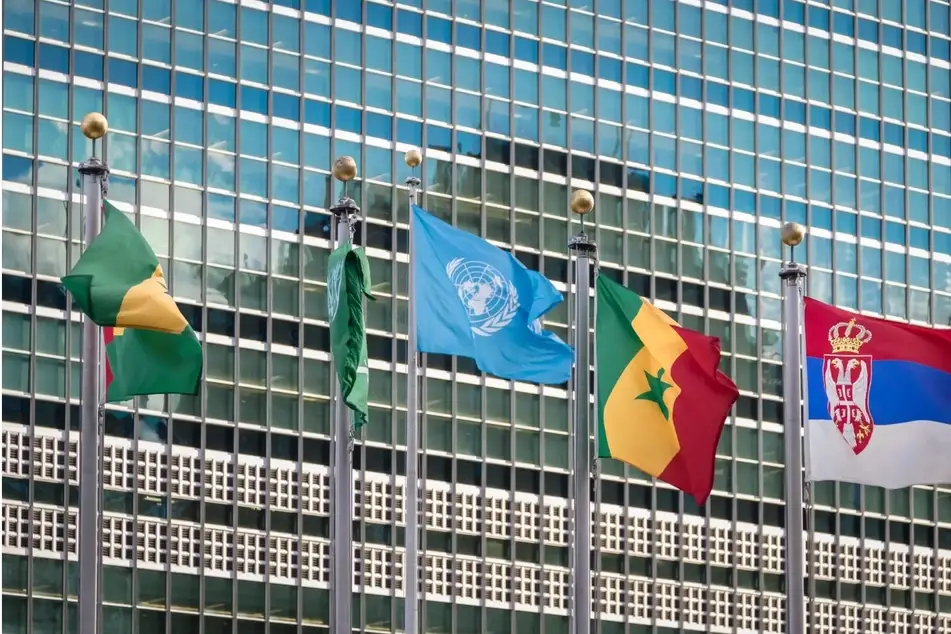7 Tips for Pursuing A Career In Human Rights

Have you considered human rights as a career choice? What interests you about this line of work?
This week, we’re sharing a list of opportunities and organizations to explore a career in human rights! Breaking into this field can be a bit challenging, so we invited Akhila Kolisetty, Idealist user and lawyer who has worked at various organizations, to share a bit about her journey and experiences pursuing a career in human rights.
Why human rights?
I first developed a passion for international development as an undergraduate at Northwestern, where I studied economics and political science. Then, my time working with an international NGO in Geneva hugely influenced my worldview, convincing me to work at the intersection of access to legal services and women’s rights in the Global South. After graduation, I chose to work at a civil rights law firm, while devoting some time to fundraising for a start-up NGO in Afghanistan that sought to open legal aid clinics promoting rule of law and women’s rights throughout the country.
Having spoken with women and girls in Washington D.C., Afghanistan, and Bangladesh, I’ve noticed the interrelated nature of poverty and violence against women and the impact a passionate legal advocate can have on the lives of the poor. And yet, legal services work remains underfunded in the international development realm.
For this reason, I decided to pursue a graduate program in law, where I’ve developed the skills I need to be a better human rights advocate and build a career that is meaningful to me.
Is a career in human rights for you?
Getting into international human rights can be a challenge; it is a difficult field to enter and can be especially competitive, particularly in today’s economy. In addition, there are many things to consider: how willing are you to travel abroad, live away from your family and friends, acclimate to a completely new and unfamiliar environment, and sometimes live in rough environments?
The more flexible you are, and the more passionate you are about living abroad and, more importantly, learning from poor communities, the better chance you’ll have to break into this field. Here are a few tips to help you get started.
1. Volunteer and intern as much as possible
Unpaid internships are essentially a requirement to get into the development and human rights field, unfortunately, especially at larger organizations and agencies like the UN. The work will often entail contributing blog posts, copyediting reports, assisting with social media awareness, and helping out at panels or events. Through these opportunities, you’ll have the chance to make connections with current people in the field, learn about important policies and trends in the development space, and develop the lingo needed to showcase a true understanding of the field in future job interviews.
However, unpaid internships are unsustainable, and truly a non-starter for many people. If that’s you, I recommend checking out whether local organizations have a paid internship available in your community. Sometimes, smaller organizations can offer a stipend supported by grants from foundations or partner corporations.
There’s also the ability to volunteer for human rights organizations, lending skills in communications, accounting, graphic design, and other areas to get your foot in the door and start learning about how everything works in the field.
2. Learn and think critically about development and human rights
If you’re just starting out in international human rights work, educate yourself! Even if you’ve never worked in the field or—if you’re in school—studying international relations, development studies, human rights, or a related subject, you can still learn by reading relevant books. Check out works by Bill Easterly, Paul Collier, Dambisa Moyo, and Amartya Sen, and blogs like The Amnesty International USA Blog, Global Voices, and Human Rights Watch. More than anything, I think it’s valuable to think critically about your involvement in international human rights, and about how you can realistically contribute and best make an impact as an outsider in this work.
3. Study about other cultures and learn other languages
Gaining“field” or in-country experience can go a long way in helping you land your first international human rights job. Studying or working abroad also allows you to better understand some of the issues facing the country or region you live in, while imparting valuable language skills.
Knowing another language and having the ability to speak thoughtfully about the politics and economics of a region can be a real asset. Spending time abroad will also give you key contacts; maintaining these contacts can help you find a job down the road, or perhaps even apply for programs where you’ll need international contacts to showcase your commitment to the work.
4. Learn concrete skills relevant to NGO management
Most NGOs appreciate skills such as grant writing, fundraising, research and writing, communications, program implementation, and monitoring and evaluation. If you can develop concrete skills in writing grants, hosting fundraising events, researching and writing human rights reports, or marketing organizations effectively through web design and social media, you will be able to contribute concretely to the needs of most nonprofit organizations.
Learning these skills while an undergrad or in graduate school can also be very useful.
5. Blog, write, and engage in social media
Personal branding can be useful in the development and human rights field. Starting a blog and contributing your thoughts on human rights and social justice work can be a useful exercise in honing your knowledge, increasing your awareness and understanding of key issues facing your field, and also getting your voice heard.
Combining blogging with social media can be extremely useful in making connections that eventually lead to a job, considering the importance of networking.
6. Have a specific goal if possible, but also be flexible
Focusing on a specific subject matter area—such as women’s rights, environmental justice, refugee rights, economic development, or post-conflict reconstruction—can be helpful to showcase particular expertise and knowledge. At the same time, flexibility can go a long way. If you’re willing to take on a lower salary or relocate to a new country or city, for instance, you’ll have a lot more opportunities available to you. Just remember that no role has to be forever, and making connections at various jobs throughout your career will help you move up the ladder and on to organizations where you can have great impact.
7. Consider graduate school to streamline your path
I chose to go to law school because of my particular passion for the intersection of law, human rights, and development, and because of my desire to learn direct client representation. A Master’s in International Affairs, an MPP, or even a Ph.D. from a top school can also be helpful in breaking into the field.
Keep in mind that many graduate degrees are expensive, and you should consider carefully whether the degree will be worth the cost. Attend graduate school fairs to speak directly to admissions staff about whether you can apply for loans, grants, or scholarships to help offset the cost of grad school.
Ultimately, a career in human rights can be incredible; it is deeply inspiring and energizing to see grassroots movements, the positive impact of aid and development, and small victories that add up to broader social change and justice. At the same time, it can be truly frustrating and challenging, with constant international travel, time away from family and friends, and the seemingly slow pace of change you want to see happen.
Following the above tips will help you break into the field, but it’s up to you to decide whether this is the right path for you.
About The Author | Akhila Kolisetty is a first year student at Harvard Law School and a graduate of Northwestern University. She has worked with human rights and legal non-profits in Washington D.C., Chicago, Bangladesh, and Afghanistan, and is passionate about issues of gender-based violence, access to justice, and rule of law.
This post was contributed by a guest author.






